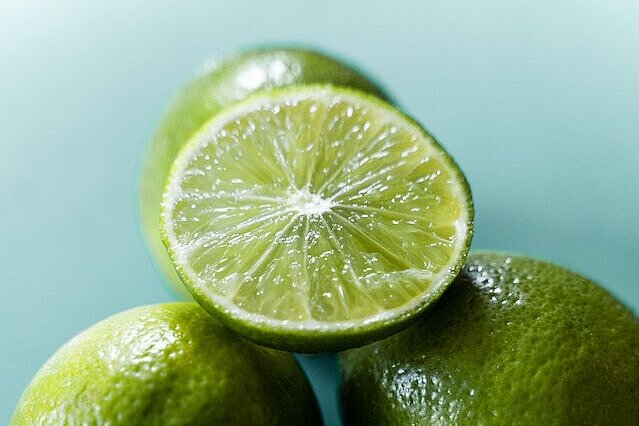Grapefruit

The benefits of grapefruit for dogs
Grapefruit has some health benefits for dogs that are similar to those for humans. For example:
- Grapefruit strengthens the immune system due to the vitamin C it contains, which is important for building connective tissue.
- Grapefruit has an anti-inflammatory and antioxidant effect due to the flavonoids naringin and naringenin, which can fight free radicals and prevent cell damage.
- Grapefruit promotes digestion thanks to its fiber, pectin and lignin, which regulate bowel movements and can increase the feeling of satiety.
- Grapefruit can help control weight due to its low calorie content (approx. 42 kcal per 100 g) and high water content (approx. 88 %), which supports fluid balance.
The disadvantages of grapefruit for dogs
However, grapefruit also has some disadvantages for dogs that you should be aware of. For example:
- Grapefruit can cause gastrointestinal discomfort due to its high acid content (approx. 1.7% citric acid), which can trigger nausea, vomiting or diarrhea in sensitive dogs.
- Grapefruit can lead to allergies or intolerances in some dogs that are allergic or intolerant to citrus fruits. Possible symptoms include skin rashes, itching or breathing difficulties.
- Grapefruit can lead to drug interactions due to the enzyme furanocoumarin, which is found in the peel and juice of the fruit. This enzyme can strengthen or weaken the effect or side effect of certain medications, e.g. antibiotics, antihistamines or heart medication.
How much grapefruit can my dog eat?
If you want to give your dog grapefruit, there are a few things you should bear in mind:
- Only give your dog small amounts of grapefruit as an occasional treat or supplement to their normal food. A rule of thumb is about one teaspoon per 5 kg of body weight per day.
- Only give your dog the flesh of the grapefruit without the peel or seeds. The peel contains furanocoumarin and bitter substances that can be harmful. The seeds can be a choking hazard or cause an intestinal blockage.
- Watch your dog for any signs of discomfort or intolerance after eating grapefruit.
Grapefruit is a healthy citrus fruit with many benefits for dogs. It can boost the immune system, reduce inflammation, aid digestion and control weight. However, it also has some disadvantages for dogs that you should be aware of. It can lead to gastrointestinal discomfort, allergies or drug interactions. Only give him small amounts of grapefruit as an occasional treat or supplement to his normal food. Give him only the flesh of the grapefruit without the peel or seeds. Observe him after eating grapefruit for possible signs of discomfort or intolerance.
Grapefruit is therefore not a forbidden fruit for dogs, but it is not a miracle cure either. As with everything, the dose makes the poison. If you want to do something good for your dog, you can offer him a grapefruit every now and then. But don't overdo it and watch his reaction.
Properties 6
Are you looking for other ingredients with a specific property?
Just click on them to find more.
If you notice any signs of hypersensitivity or poisoning in your dog, you should see your vet immediately. We are not a substitute for a vet, but we try to be as accurate as possible. Every dog reacts differently and we recommend you get a second opinion or consult your vet if in doubt.
Stay healthy and take good care of your four-legged friend!😊
Similar to Grapefruit
The orange is a citrus fruit that belongs to the rue family. It has a round shape and an orange-colored peel that can be peeled off. The flesh is juicy and sweet and sour and consists of many small...
The short answer is yes, limes are poisonous to dogs and therefore very dangerous. Every part of the lime is toxic to dogs, including the peel, pulp, juice, zest, etc. The reason for this is that...
Lemon can have several positive effects on your dog's health and well-being. For example: Lemon can help to strengthen the immune system as it contains a lot of vitamin C. This can be particularly...
Mandarins are small, orange-colored citrus fruits that are often compared to oranges. However, they are smaller, sweeter and easier to peel than their larger relatives. Mandarins are an excellent...



